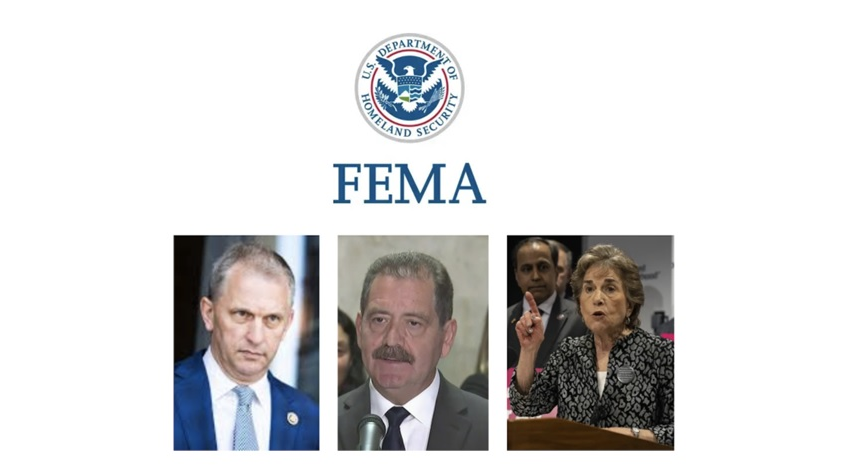In recent developments surrounding the immigration crisis in the United States, evidence has emerged suggesting that the Department of Homeland Security (DHS) and the Federal Emergency Management Agency (FEMA) are actively financing the ongoing influx of asylum seekers. A recent Freedom of Information Act (FOIA) response from the City of Chicago, uncovered by Terry Newsome of Behind Enemy Lines podcast, revealed a significant monetary commitment from FEMA to sanctuary states and cities facing high numbers of migrants. The email correspondence between FEMA’s Office of Partnership and Engagement and City officials illustrates that over 5,000 asylum seekers were placed in Chicago and surrounding suburbs between February and April 2023. The documents indicate that the federal government has funneled over $300 million into these communities to support this migrant influx, contradicting public narratives that deny such funding.
The escalating financial burden on cities like Chicago is evident in their staggering spending requests. The City of Chicago submitted a plea for $66 million to address the needs arising from the migrant crisis, having already expended $75 million by April 2023 and facing ongoing costs of about $20 million monthly to provide essential services such as housing, food, and healthcare for these new arrivals. Analyzing the cumulative expenses related to this migration reveals a daunting figure; from July 2022 to October 2024, the City reports a total expenditure exceeding $541 million. With further connections drawn to organizations like Catholic Charities and affiliates of the Obama Foundation, it becomes clear that there’s a well-organized system reallocating substantial taxpayer resources to support migrants while leaving significant gaps in assistance for local citizens.
Amidst these troubling expenditures is the unsettling detail that the entire Chicago Federal delegation petitioned DHS Secretary Mayorkas for $20.5 million intended to finance the Emergency Food and Shelter Program for migrants. This request highlights the prioritization of illegal immigrants over vulnerable populations, including homeless veterans who have struggled to find shelter during harsh winter months. The hypocrisy of this situation is compounded by legislative moves such as Public Act 103-0232 in Illinois, which makes it a civil rights violation for landlords to discriminate based on immigration status. Such policies seem to facilitate the housing of numerous newcomers at the expense of local taxpayers, illuminating a governance framework seemingly more accommodating to non-citizens than to existing constituents.
The political landscape takes on an ironic tone as Illinois voters approach the November elections. Prominent representatives like Chuy Garcia, Sean Casten, and Raja Krishnamoorthi are presented as advocating for the interests of their constituents while concurrently allocating significant taxpayer funds to provide for noncitizens. This duplicity raises questions about the priorities of these elected officials as they champion initiatives that bite into the local economic fabric. The juxtaposition of tax fund allocation for the care of others against the backdrop of struggling American citizens is telling of a governance approach that appears detached from the needs of the people it represents. This creates a disillusioned electorate grappling with decisions that seem far removed from their immediate concerns.
As this intra-governmental situation unfolds, there is a glaring inconsistency in the efficiency of FEMA’s response to natural disasters, such as Hurricane Helene in North Carolina. Interviews with affected residents underscore disappointment with the agency’s lack of substantial relief or resources. The economic aid to survivors, reported at only $750, raises concerns about the sufficiency of governmental support in instances of genuine citizen crisis. Investigations into FEMA’s temporary housing setups for storm response merely emphasize inefficiencies, posing questions on resource allocation and effective disaster management when juxtaposed with the higher funding for migrant assistance.
In essence, the volume of taxpayer funds directed towards the accommodation and care of non-citizens starkly contrasts with the meager offerings provided to American citizens facing adversity. This discrepancy signals a significant mismanagement of priorities within federal agencies like FEMA. For voters in Illinois and across the country, this presents an urgent call to action — to scrutinize and challenge local representatives who appear to favor noncitizen welfare over support for their constituents. The intent behind such priorities also warrants reflection: whether this trend of prioritizing new classes of constituents signals a strategic political maneuver at the expense of the current populace. The implications of these patterns extend far beyond immediate fiscal impact, suggesting long-term transformations in electoral dynamics and representation.

